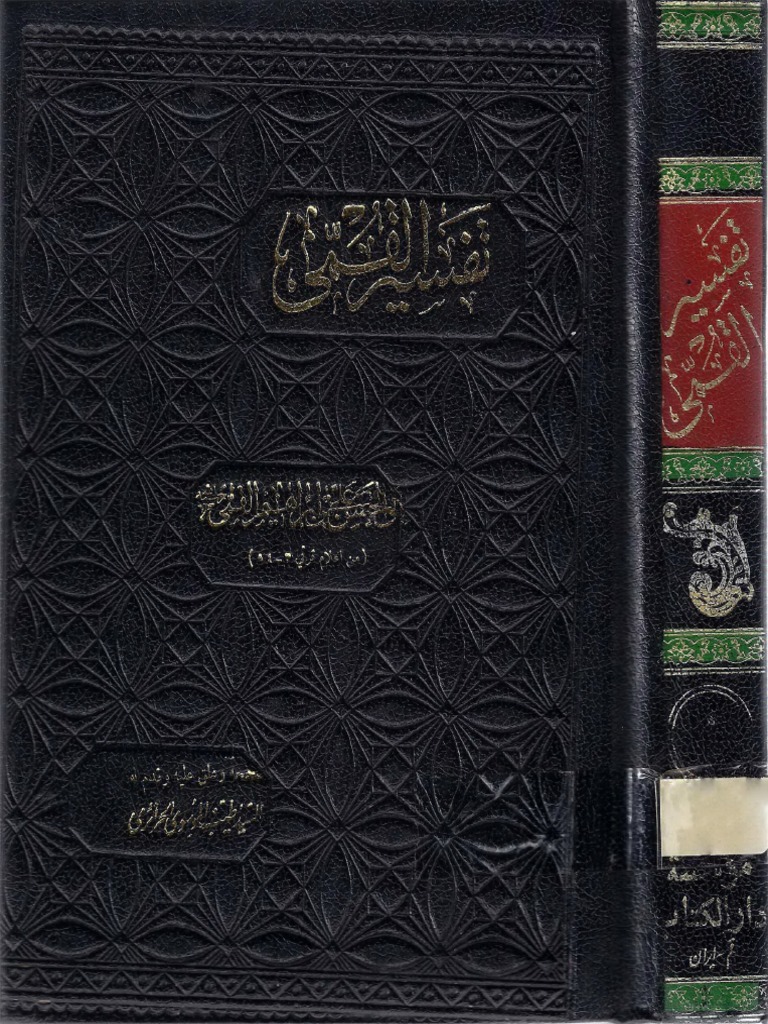The Tafsir al-Qummi, an essential text in Shia Islamic scholasticism, serves as a crucial interpretative source of the Quran. Compiled by the esteemed 9th-century Shia scholar, Abu al-Hasan Ali ibn Ibrahim al-Qummi, this exegesis epitomizes a distinctive approach to understanding the divine text, intertwining theology, history, and cultural nuances. But what makes this specific tafsir stand out in the pantheon of Islamic commentaries? Moreover, how might the contemporary reader grapple with its teachings in the context of modern challenges? This exploration aims to elucidate the significance of Tafsir al-Qummi within Shia doctrine and its implications for both understanding scripture and navigating contemporary dilemmas.
At its core, the Tafsir al-Qummi is not merely an academic exercise; it represents the integration of divine revelation with the lived experiences of the Shia community. This interpretative lens is characterized by a profound reliance on narrations from the Prophet Muhammad and the Imams, particularly emphasizing the latter’s role as intermediaries in conveying divine wisdom. Al-Qummi’s work is replete with Hadiths that elucidate Quranic verses, thereby weaving a rich tapestry of theological insight that is distinctive to Shia thought.
One of the hallmark features of Tafsir al-Qummi is its methodology. Al-Qummi employs both contextual and linguistic analyses to derive meanings, often elucidating the historical circumstances surrounding specific revelations (asbab al-nuzul). This practice not only enriches the reader’s understanding of the text but also fosters a dynamic engagement with the Quran, urging readers to consider the relevance of its teachings in varied contexts. Through this hermeneutic approach, the text prompts a broader inquiry: how can ancient wisdom inform contemporary ethical considerations in a rapidly evolving world?
Within the Tafsir, one can observe a robust discourse on moral and ethical principles that are central to Shia beliefs. For instance, al-Qummi often highlights verses that pertain to justice, compassion, and community solidarity. These themes resonate deeply within Shia traditions, which emphasize social responsibility and collective well-being. This emphasis raises poignant questions: how do these values manifest in today’s socio-political climate? Are contemporary Shia communities effectively upholding these principles when faced with challenges such as inequality, sectarian strife, and global unrest?
Tags
Share this on:
[addtoany]


